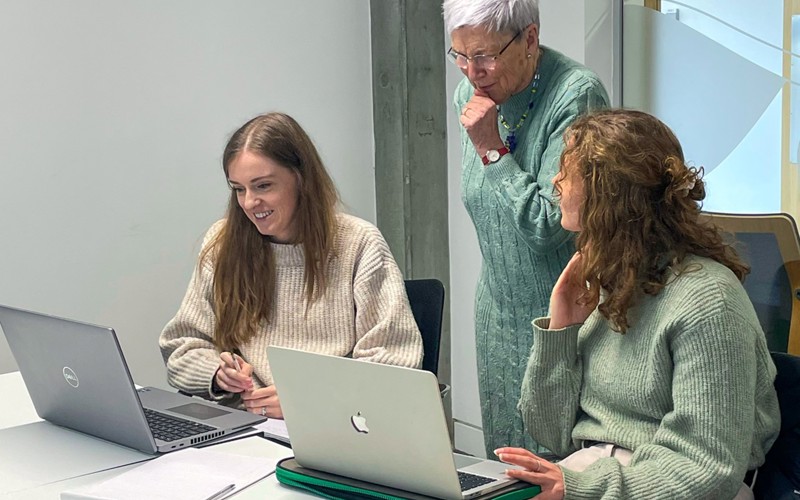
RDS strengthens public involvement for research access
Members of the public will provide early feedback on research applications as part of a new advisory group.
13 Oct 2025

Adam Coulson | Average reading time 3 minutes
25 Nov 2025
October saw a significant release of the Researcher Access Service (RAS) which included a raft of improvements designed to support researchers.
The service is a streamlined end-to-end platform for researchers accessing secure data. Launched in 2024, the RAS provides a fully digitised and simplified application process, enabling researchers to track their data access request from start to finish.
With the help of our colleagues in eDRIS, we’ve spent the last few months working to improve the service by putting in place the building blocks needed to grow the service in 2026.
This release sees us:
Overhaul the application form which sits at the heart of the approvals process
Replace the need for researchers’ training documents by instead aligning to the UKSA Accredited Researcher model, and;
Add a new layer of public scrutiny with the introduction of the Public Impact Advisory Group
While the service has been operating for 18 months, these changes mark a significant milestone as they bring it in line with the Digital Economy Act and prepare the ground for faster project approvals, and where required, accreditation through the UKSA Research Accreditation Panel.
If a researcher applies for access to secure data in one UK nation they might be asked a set of questions which differ just enough from another UK nation to warrant a re-write. Questions are asked in slightly different ways, but they’re essentially the same. Researchers are asked to edit their answers and re-submit if their applications are considered not to be approval ready. This can be very frustrating and time-consuming.
To reduce this frustration, we’ve been working with a group of organisations across the four UK nations to standardise the forms researchers complete when accessing data for research.
Led by Administrative Data Research UK (ADR UK), the group is made up of representatives from Research Data Scotland, the Office for National Statistics (ONS), SAIL Databank (Wales), the UK Data Service, and NISRA (Northern Ireland).
The group mapped the researcher application process across the four UK nations and analysed the application forms used across each Trusted Research Environments (TREs). Collectively they set out a series of recommendations for streamlining forms:
Standardise common questions
Questions like methodology, ethics, and project summary appear in all forms but are inconsistently worded and formatted. Standardising the questions should lead to a reduction in duplication for researchers who might interact with multiple TREs.
Reduce the need for combinations of forms
Some TREs required researchers to complete both an application form along with additional elements like an ethics self-assessment form. By incorporating the ethics questions within the body of the application form the intention is to reduce the volume of forms and simplify the process for researchers.
Minimise the total number of forms
Where feasible, it was recommended that TREs should consolidate their forms, for example combining localised TRE-specific forms with the overarching UKSA form which would reduce administrative burden.
The new RAS application form launched on 30 October 2025 seeks to follow the standardised approach as recommended by the group, reducing the burden on researchers. A read-only version of the application form is available online.
This milestone release lays the foundations for how we plan to build the service in 2026, which will see an increase in the range of datasets available through RAS and onboarding of new data controllers. The next phase of work involves seeking feedback from researchers so we can continue to iterate and improve the service frequently as more researchers progress through the approvals process to data access.
Find out more about the Researcher Access Service and the projects approved through it in the Data Use Register.
Related content

Members of the public will provide early feedback on research applications as part of a new advisory group.
13 Oct 2025

Research Data Scotland (RDS) will require all researchers who apply for access for data through the Researcher Access Service (RAS) approval pathway to have accredited researcher status from Thursday 30 October.
12 Sept 2025
To stay updated with Research Data Scotland, subscribe to our monthly newsletter and follow us on X (Twitter) and LinkedIn.
